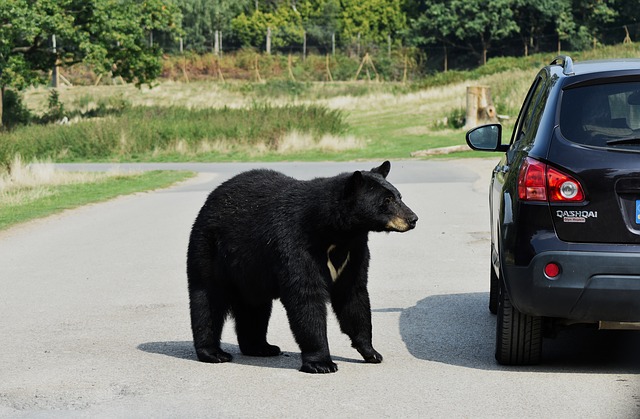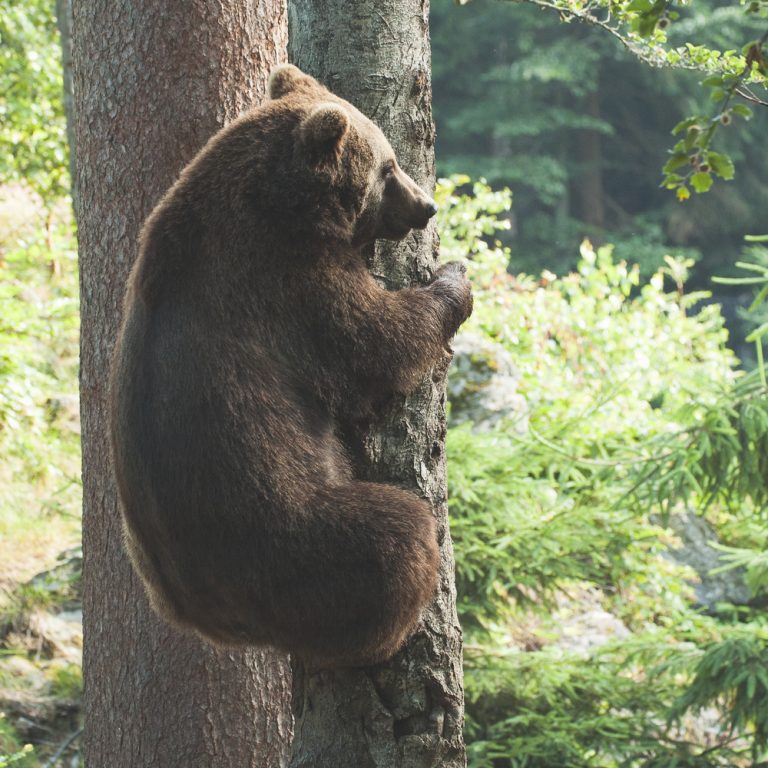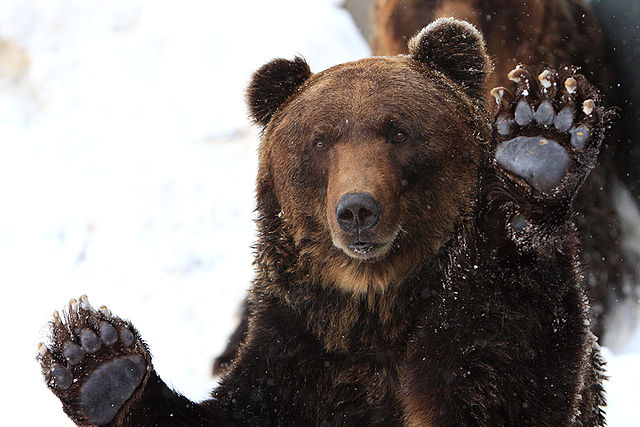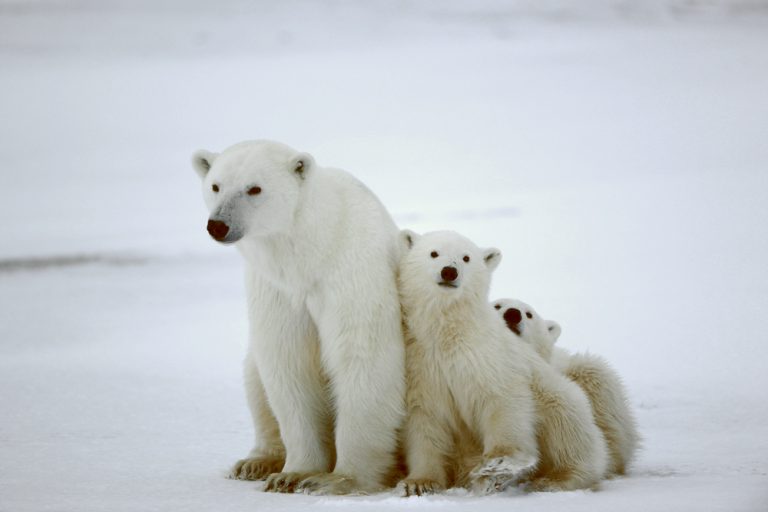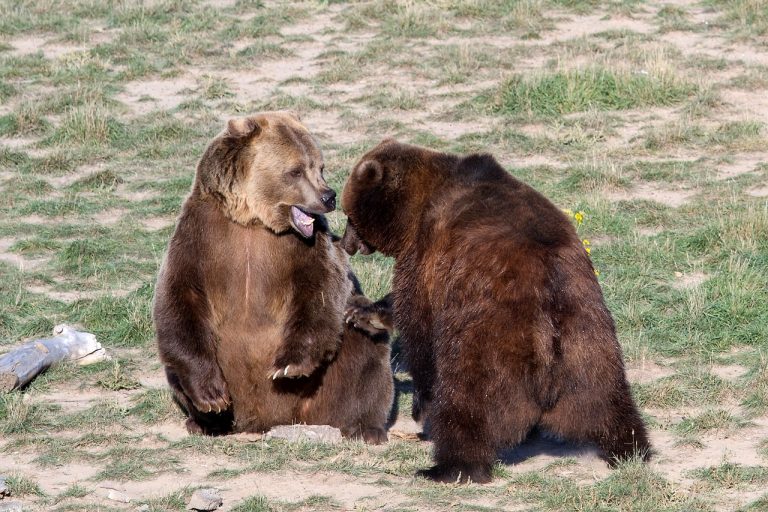Romanian Bears And The Deadly Battle For Survival
Despite a national ban on hunting Romanian Bears, there is a negative attitude to bears and some locals have chosen deadly methods of bear culling.
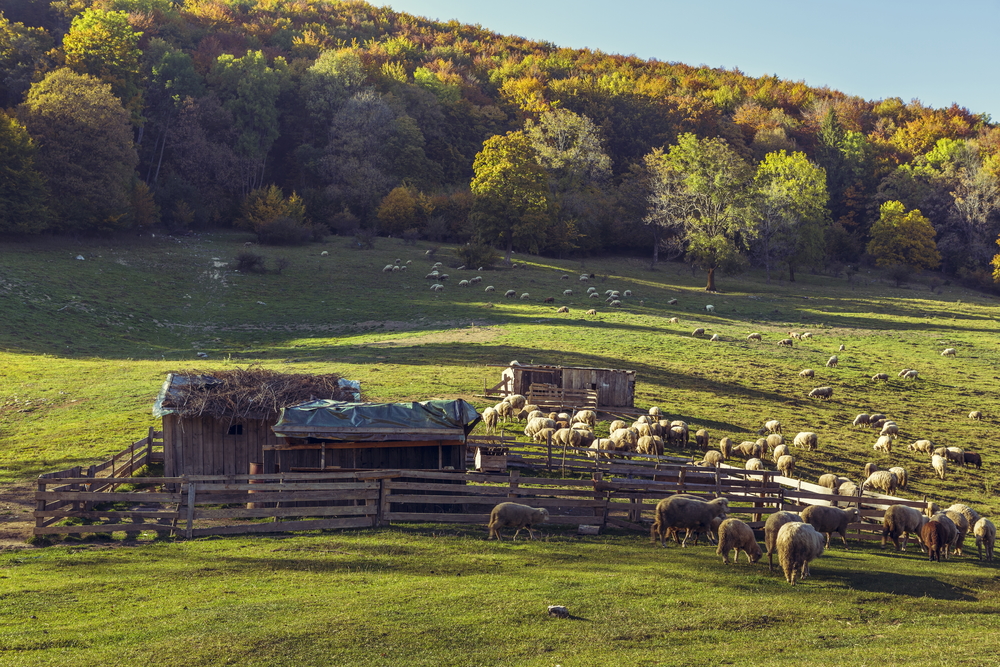
When walking home one evening, Csaba Demeter, a forest guard from Carpathian Mountains was taken unawares by a brown bear that attacked him from behind. The animal pinned him to the ground and began to tear at his limbs and back with its teeth and claws. By playing dead, Demeter was able to survive the bear attack as the animal lost interest after about five minutes of serious bodily damage.
The badly injured man was left barely alive but he survived.
A couple of years back, Csaba’s story probably wouldn’t even make it to the local news. But today, the negatively changing attitude of the populace towards bears means there is a steady increase in appetite for bear attack stories.
Let’s find out what’s going on with Romanian bears below.
Romanian Bears And Their Battle For Survival
Politics And Shifting Public Sentiment
The politics of any area are highly influenced by the region’s daily happenings; what the people are accustomed to. In other words, their way of life.
There’s always been a uneasy coexistence between humans and bears in the many thickly-forested areas of Romania. People generally took them as a part of their environment and would just let them be.
But, that’s changing.
It’s only as you leave the fast developing Romanian cities and venture deeper into the rural Transylvania, you will notice the difference. On a typical day in recent times, group of locals are keenly listening to different politicians promising to rid them of a menace; bears.
They are of the view that these animals have caused mayhem and raised a lot of security concerns in the small communist-era towns off the foothills of Carpathian.
In fact, going deeper from the hills to villages sealed from the rest of the world by thick forests, residents have now taken matters into their own hands. The villagers here spend their days trading in homemade recipes for bear poison.
An ideal formula would have a pleasant smell that appeals to a bear from far and is potent enough enough to bring down a 600lbs animal. And yet it should be slow enough to let the bear wander for miles before eventually dropping dead.
The villagers now see killing these bears as a necessity, not an option. Of the many villagers spoken to by the Guardian, all saw killing bears as a necessity. The government, they say, has abandoned them to fend for themselves, and the bears are a threat that can’t be ignored.
Unfortunately, bear attacks are relatively common in Romania.
Why Are People Deciding To Poison The Bears?
Well as it is, they believe the Government has abandoned them.
Recent estimates say at least 6,000 bears roam freely in the 500-mile mountainous ranges of Romania. Since the collapse of communism in 1989, “bear management” is haphazard and is left more or less to the hunting associations.
Each year, these groups provide statistics of bears in their jurisdiction, identify culprits that are a “danger” to humans. Thereafter, they auction off a quota to the highest bidding hunting company that cater for hunters from all around the world.
The situation on ground is critical. People are afraid to leave their homes at certain times of the day.
For instance, take the case of the village of Atid. There is hardly any household without a bear attack story/experience . Residents don’t even let their children out after dark for fear of bear attacks.
In Harghita county, tucked into the foothills of Transylvania, is an area where the presence of bears is most deeply felt. Hundreds of farmers there also routinely approach the government for compensation over lost livestock and crops.
Borboly is president of Harghita county, a predominantly ethnic Hungarian region tucked into the foothills of Transylvania,
The attitude towards bears is now mostly negative in the region. People also have a large appetite for bear attack stories.
The Ban On Hunting Romanian Bears
Ironically, the state of Romania banned killing large carnivores in October 2016. The environment minister, Cristiana Pașca Palmer imposed this surprise ban stating though it is illegal to kill animals in Europe. The government was of the opinion that though hunting bears is masked as creating a safe place for humans, in reality, it’s a cover-up for moneymaking.
Conservationists worldwide welcomed this ban with much applause.
However, like any decision, this one has its detractors too. For the past year, a group entirely against the ban has sprouted and gained momentum through time. Its leader, Csaba Borboly, advocates for the widespread culling of bears. He claims vigilante killing would be the solution to creating a safe environment for people.
Borboly is the president of a densely forested and arable farmland in Harghita County mentioned before.
Borboly claims bear attacks have more than doubled since the ban. His statistics account for 263 bear attacks since the ban. He claims the attacks stem from the protection of the bear and lack of “punishment” for the animals when they venture into human establishments. He also blames this for the bears’ deteriorating behavior.
However, his numbers and conclusions have been swiftly refuted by scientists in the Harghita region.
Unfortunately, Borboly appears to have whipped up enough sentiment to command tremendous power in the area. You have to listen to what he has to say regardless of how crazy it may sound, as everyone else is listening. So says Csaba Domokos, a bear specialist with Milvus Group.
The effects vigilante killing has on bears is disastrous, says Domokos. Though difficult to ascertain the damage thus far, bears are easy to poison and snare and the numbers of dead bears littering the area is mounting.
Any Hope For The Romanian Bears?
Less than 50 miles east of Harghita, lies villages with the same bear attack issues. However, their approach is entirely different. The locals do not see hunting as a solution.
A researcher named Silviu Chiriac and a group of biologists were able to assess that where hunting is prevalent, bear attacks will increase. In addition, more bears will venture into human settlements as a result.
Hunting is not the only cause of problems people have with bears, he says, but a significant factor. As with any hunting expedition, the hunters do not hunt near the camp where the troublesome bear resides. Instead, they venture deep into the woods, locate the most prominent bears and shoot them.
More often than not, hunters never solve the problem as the troublesome bear remains alive and more troublesome while a peaceful non-threat to civilization bear in the woods gets his life terminated unnecessarily.

